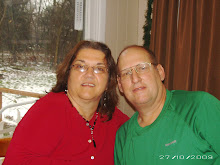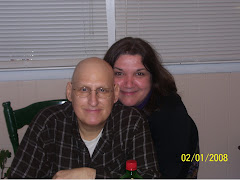One of the most important characteristics of being a caregiver is being optimistic. I must admit it is not always easy. Finding encouraging articles such as the one below gives me and my husband much hope. We also believe every word of the Bible and cling to its promises especially in a time like this. The Bible says, "A merry heart doeth good like a medicine: but a broken spirit drieth the bones," Proverbs 17:22. The Lord tells me through His Word that if I am happy it will make me better. He also tells me that a broken spirit can kill me. My husband, whose lymphoma is now in remission, often tells me that he guards his spirit. Perhaps this is what will keep the lymphoma in remission.
New Lymphoma Therapies Targets Diverse And Difficult Cancer
ScienceDaily (Apr. 28, 2008) - The fifth leading cause of cancer in
the United States, lymphoma is made up of more than 40 rare and
highly diverse diseases that target the body's lymphatic system.
Lymphomas include both one of the fastest growing cancers --
Burkitt's lymphoma, which can double in size in as little as a day --
and one of the slowest, chronic lymphocytic leukemia (CLL).
While all lymphoma types can be cured or managed as a chronic
disease, its complexity and variation do not allow for a one-size-
fits-all treatment approach. Instead, it necessitates highly
specialized and individualized approaches.
With a dozen new therapies in development -- one of the largest
portfolios of lymphoma drugs under development anywhere -- the
Herbert Irving Comprehensive Cancer Center of NewYork-Presbyteria n
Hospital and Columbia University Medical Center is meeting this
challenge with highly effective new treatments for the disease,
giving hope to the more than one million lymphoma patients worldwide.
In 2006, NewYork-Presbyteria n/Columbia recruited Dr. Owen A.
O'Connor, one of the world's top lymphoma researchers, to lead its
Lymphoid Development and Malignancy Program, and direct more than 25
full-time scientists and physician scientists.
"By increasing the number and quality of treatment options for
lymphoma patients, we are improving their chances for survival. This
is especially critical for patients who haven't responded to standard
therapies," says Dr. O'Connor, who is also chief of the Lymphoma
Service at NewYork-Presbyteria n/Columbia and associate professor of
medicine at Columbia University College of Physicians and Surgeons.
One of the most promising new therapies developed at NewYork-
Presbyterian/ Columbia is PDX (pralatrexate) for T-cell lymphoma --
among the most fatal forms of the disease. The drug is uniquely
designed to camouflage itself as a folic acid, which allows it to be
absorbed by the tumor, where it attacks the cancer. The therapy has
been shown effective in 54 percent of patients who did not respond to
other treatments. The drug is now being evaluated around the world,
and if its activity is confirmed, it may get regulatory approval some
time next year.
"Our hope is that the national multi-center clinical trial that is
currently underway to evaluate this drug will result in an improved
treatment option for patients," says Dr. O'Connor, who has played a
leading role in developing the drug.
Researchers are also exploring novel lymphoma treatments that are not
chemotherapies. These include drugs targeting Bcl-6, a gene cloned by
Dr. Riccardo Dalla-Favera in 1993, and an enzyme known as histone
deacetylase. Work by Dr. Dalla-Favera has shown that drugs affecting
these two targets will markedly synergize with conventional
chemotherapy, and may lower the amount of chemotherapy necessary to
achieve remission.
"We are very excited about the promise of these new therapies. Our
lymphoma program includes some of the nation's brightest scientists
working together to translate laboratory discoveries into improved
treatment options for patients," says Dr. Dalla-Favera, who is
director of the Herbert Irving Comprehensive Cancer Center at NewYork-
Presbyterian/ Columbia, director of the Institute of Cancer Genetics
at Columbia University Medical Center and Uris Professor of Pathology
and Genetics & Development at Columbia University College of
Physicians and Surgeons.
Investigators at NewYork-Presbyteria n/Columbia also collaborate with
colleagues at NewYork-Presbyteria n Hospital/Weill Cornell Medical
Center, including Dr. John Leonard.
__._,_.___
Subscribe to:
Post Comments (Atom)


















2 comments:
It is encouraging that you are learning so much to help Bro. Gieseler. Thank you for sharing with us!
-Rebekah Tastet
Great wisdom ! Good information as well. Thank you.-lv nancy musser
Post a Comment